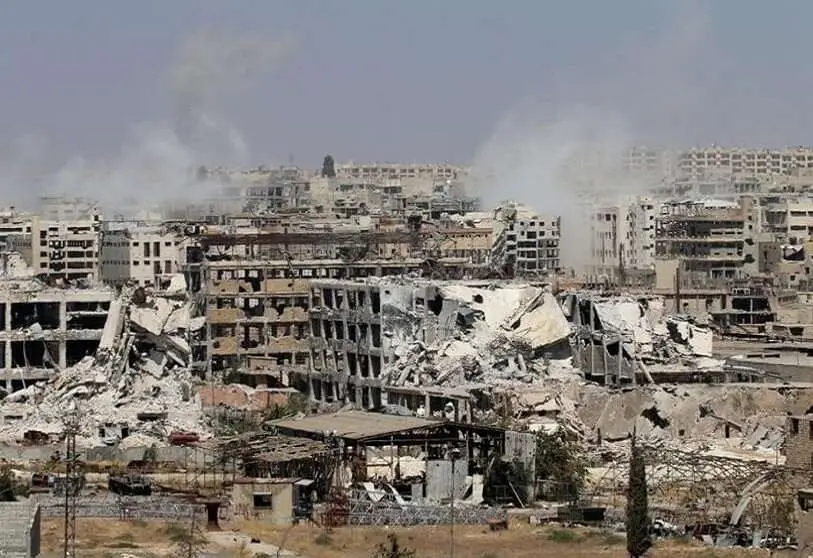Shattered Syria

The terrible situation of thousands of Syrians on the tenth anniversary of a triple war waged on their territory, which has torn them apart, is not gaining international attention. Numerous humanitarian organisations are making efforts to denounce the subhuman conditions suffered by thousands of people in Syria, but they do not achieve the necessary echo in the most influential media, especially television, so that political leaders feel sufficient electoral pressure from their citizens to force them to provide the corresponding humanitarian aid.
Syria, 10 years of war and 80% of the population living in poverty. Pier Jabloyan, a Salesian missionary from Syria, explains that "peace will be achieved when the countries decide to work for the suffering population and not for their own interests". Eusebio Muños, director of Salesian Missions, affirms: "Many Syrian children do not know what it means to live in peace and see their needs covered".
The figures for these ten years are terrible: more than half a million dead, 200,000 people missing, 5.6 million refugees, 6.7 million internally displaced people, 13.4 million people who need humanitarian aid to live, more than 2.4 million children out of school, 60% of children suffering from hunger... Jabloyan dramatically concludes that now they are not suffering from daily bombardments, but they are facing economic warfare and coronavirus with most hospitals and health centres destroyed.
This is the humanitarian situation, which has little influence on the negotiations between the different actors looking only at their own interests in a country that has become a strategic centre in the region. The Syrian dictator Bashar al-Assad managed to win the war against rebels seeking democracy and freedom in the poisoned wake of the Arab Spring, which was self-servingly driven by unsavoury interests. Russia has managed to recover much of its role as an international superpower in Syria in the face of Trump's hesitant and contradictory policy, despite its economic weakness, with new weapons systems and its strengthened military bases in Lakatia and Tartus, a naval point in the Mediterranean. And the regional powers have been measuring their strength for control of the region.
In between, terrorist groups such as Da'esh broke through, taking advantage of indirect support that they subsequently lost in the face of their cruelty and extortion of the people they controlled in Raqa, Syria, and Mosul, Iraq.
Israel now struggles to prevent Iran from consolidating its bases in Syria and Hezbollah's continued rearmament in Lebanon. On the northern front, Turkey is continuing its invasion of the area where it is fighting the Kurdish militia. Its aim is to prevent the creation of a Kurdish state at all costs and to regain the popularity that President Erdogan is losing day by day.

